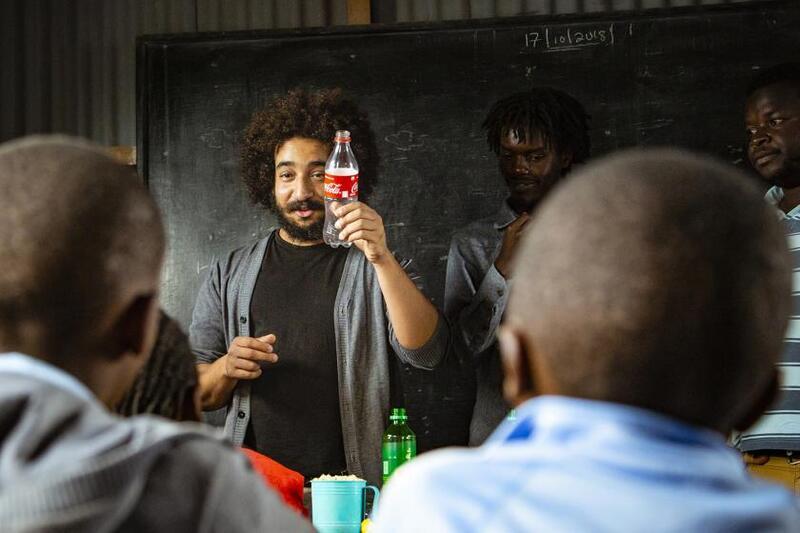
EU adopts new rules to significantly cut packaging waste with re-use targets
The European Union has formally adopted a regulation on packaging and packaging waste. The new ...

The United Nations Environment Program (UNEP) said parents can play their part to support sustainable development through teaching their children at home about plastic pollution and recycling.
As schools and gatherings are cancelled worldwide over the outbreak of the coronavirus (COVID-19), parents have a great chance to teach their children about plastic pollution and ways of curbing it, especially through recycling.
Every year 8 million tons of plastic waste enters the oceans, causing grave harm to the environment and sea animals.
The UNEP considered the Garbage Conservatoire, which was established by Egypt’s Shady Rabab, as an example that could encourage children to fight plastic pollution and engage in recycling activities.
In 2018, Shady Rabab from Egypt won the UNEP prestigious Young Champion of the Earth Award for spotting an opportunity to get children off the streets and stop plastic from being wasted.
He started the Garbage Conservatoire, touring with his band of children and their instruments made from plastic pollution showing the world that it’s not waste, until it’s wasted.
The UNEP called for encourage children to use (clean) plastic rubbish to make their own instruments. They can even put on a concert for their family or for social media.
The UNEP went on to spell a host of ideas that could help parents encourage their children ditch plastic waste and save the environment.
The UNEP said “every day we use lots of plastic products without thinking about their impact on the planet. Go into your kitchen cupboards with your child and ask them to sort everything into the type of material (plastics, cardboard, aluminum, etc.) Ask your children to pick out the items that can be recycled and show them where on the packaging they can see if its recyclable or not.”
The United Nations Environment Program Clean Seas educational pack can help to show children in greater detail what different types of plastic are out there, and ways that they can reduce their use of them.
The UNEP also called on parents also to get rid of sources of plastic pollution at their bathrooms.
The UNEP suggested that a great way to combat hidden plastics is to have a do-it-yourself family home spa day. “You can show your children how to make great natural scrubs from coconut oil, sugar and salt, and you can also make face masks from honey and bananas. Make some home treatments, put on some calming music, and relax.”
The UNEP added that many things that seem like soon-to-be trash can be given a fun new lease of life. “Using plastic that you might otherwise throw away, help your child to make a small plastic raft or boat. They can put them in the bath or sink to see if they float and even take their toys on a boat ride! If possible, you could even take them to your local pond or stream and have raft races.”
A recent Clean Seas campaign took part in this activity on a larger scale. A nine-meter long dhow made from 10 tons of recycled trash found on Kenya’s shorelines called “Flioflopi” sailed from Lamu, Kenya to Zanzibar raising awareness about plastic pollution.
Meanwhile, the UNEP said upcycling—or “making new furniture, objects, etc. out of old or used things or waste material”—is one of the best fashion trends for the environment.
In 2016, American Rob Greenfield wore every piece of trash he created in a month, turning it into a bulky trash-suit. Why not get children to make some stylish fashion accessories out of plastic waste? They can put on a fashion show with their new creations.
There are many more ways that parents can teach their children about plastic pollution and its impacts. The UNEP’s Clean Seas website has advice for how to reduce plastic footprint, and the impact that plastic pollution is having.
The UNEP’s Head of Advocacy, Atif Butt says, “Now, more than ever, it is clear that we must work together if we are to solve the world’s greatest challenges. By teaching and learning from future generations about environmental problems, we can make great strides to beat pollution.”
The European Union has formally adopted a regulation on packaging and packaging waste. The new ...
Inaugurating the Abydos Solar Power Plant in the Upper Egypt governorate of Aswan represents a ...
Businesses that fail to adapt to climate risks like extreme heat could lose up to ...


اترك تعليقا